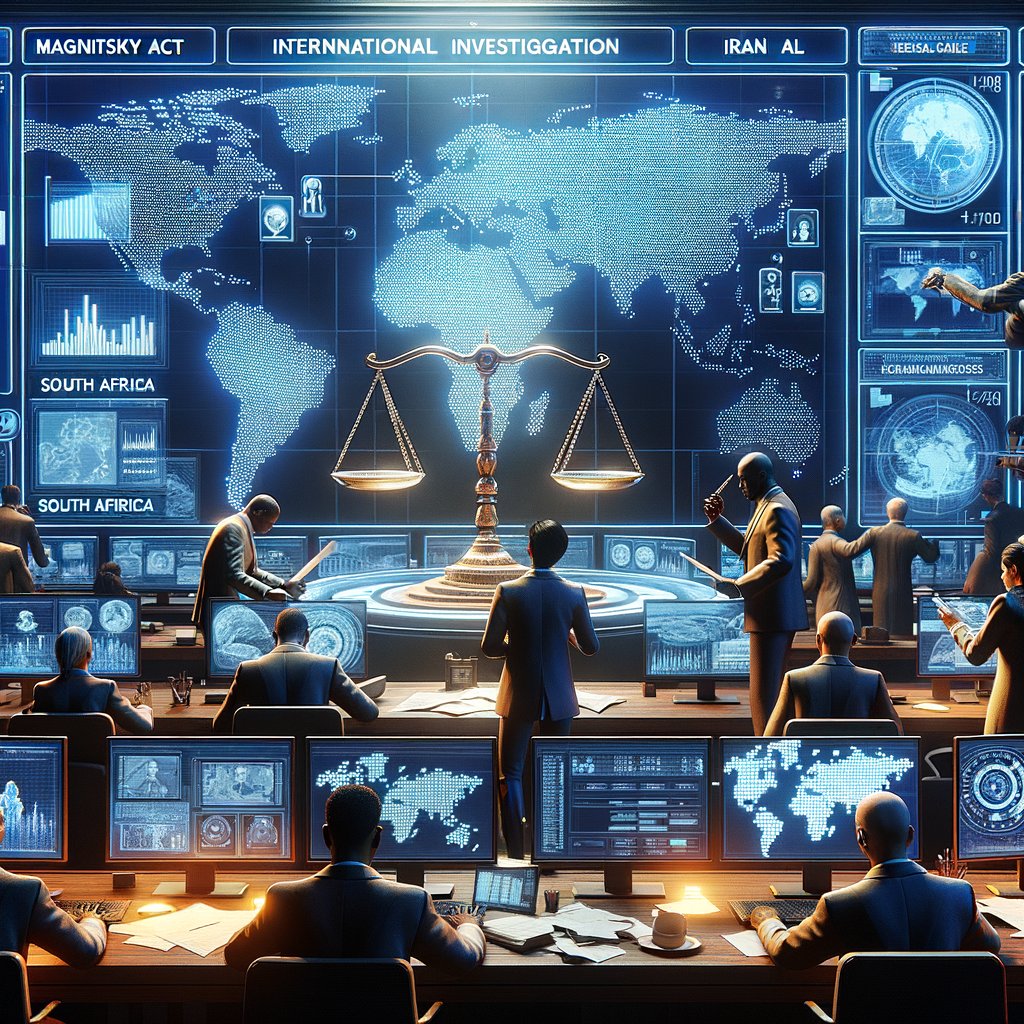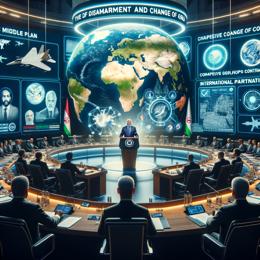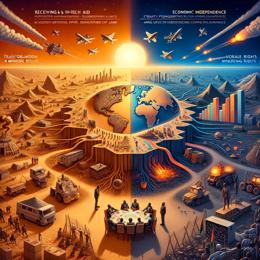Image created by AI
U.S. Probes ANC Leaders Over Alleged Iran Bribery to Target Israel in International Court
In an unfolding international legal drama, the United States is currently investigating alleged corrupt dealings involving leaders of South Africa’s ruling party, the African National Congress (ANC), who are accused of accepting bribes from Iran. The purported intent behind these bribes was for South Africa to bring charges against Israel for genocide at the International Court of Justice (ICJ).
Nitsana Darshan-Leitner, a key figure in global legal battles against terrorism and the founder of the Shurat HaDin Israel Law Center, highlighted these allegations in a revealing interview with BizNews. Darshan-Leitner has been instrumental in mobilizing a battalion of 160 lawyers to urge American authorities to probe these claims, and although the Biden administration has not yet responded, traction has been gained under the Trump administration.
Iran will dump these ANC illiterate cadres, who enjoy being puppets!
— Slaughter. (@BafanaSurprise) March 4, 2025
They have no clue on what they are getting themselves into, they enjoy being bought! They aren’t aware that, there is always a price to pay! pic.twitter.com/1CRSlIfp62
According to Darshan-Leitner, South Africa was reportedly in a financial quandary when it allegedly entered into a dubious agreement with Iran. Under this deal, Iran is said to have provided financial relief to South Africa, which in turn engaged in legal actions favoring Hamas by filing suits against Israel in the ICJ over actions in Gaza. Darshan-Leitner accuses the ANC leaders of participating in "legal warfare" orchestrated by Hamas, aimed at challenging Israel in international legal arenas predisposed to favor their causes.
The gravity of these allegations has prompted calls for the invocation of the Magnitsky Act by the United States, which could lead to sanctions against South African officials if they are found complicit. The Magnitsky Act is a critical tool in the U.S. legal arsenal, enabling the government to impose sanctions on foreign officials worldwide deemed to be human rights offenders.
Moreover, Darshan-Leitner expressed concerns over South Africa’s broader geopolitical implications, particularly its ties with Iran and supportive stance toward Hamas, which could potentially lead to a reconsideration of South Africa’s status under trade agreements like the African Growth and Opportunity Act (AGOA).
Her stern message to the South African government was unambiguous: retract from engaging in Middle Eastern conflicts and cease support for Hamas, suggesting a potential regional spill-over of terrorism.
As these investigations unfold, they not only underscore the complexities of international diplomacy and legal engagements but also spotlight the intricate and sometimes perilous interconnections between global finance, legal maneuverings, and international politics, where nations are held accountable on the world stage for their alliances and actions.










